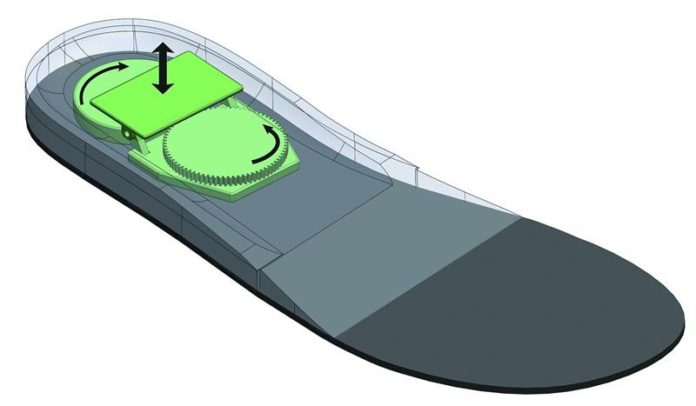
A shoe fits a device that saves the energy the person makes by walking and successfully uses it in watch batteries.
At the Center for Research in Advanced Materials (CIMAV), scientists decided to “capture” the energy produced by people walking. They designed a pill-shaped cylinder adapted to a shoe in order to store the mechanical-vibrational energy the person generates when walking.
With the captured energy they have been able to recharge clock and AAA batteries. The prototype designed by CIMAV in Chihuahua, in the north of Mexico, adapted the ‘pill’ which has a diameter of two inches and a thickness of three millimeters to the sole of a shoe.
Abel Macias Hurtado, head of research and specialist in materials science, said that the pill is a device called piezoelectric measuring pressure, force and acceleration, placed in the sole, and by means of a circuit converts mechanical energy into microwatts ; once connected to the batteries, it was tested with good results.
Piezoelectric is a term that comes from pressure and electricity. When walking, mechanical force is generated which is “captured or harvested” to generate the energy that is “stored” in the pill for further use.
The specialist indicates that in the area of nanostructured materials an important base of the research is to harvest or produce clean energy, and this prototype is ideal for that purpose.
“We want to improve the circuit of the tablet to make it more efficient at capturing energy. Now we are working in making it more efficient, currently we already have clean energy,” says the researcher at CIMAV.
Hurtado Macias indicates that the prototype was implemented in an ordinary shoe with a wide sole; while walking people steps and makes contact with the ground. That’s where the energy is generated.
In this work engineering physics students of the Autonomous University of Chihuahua and Jesus Gonzalez collaborated for the evaluation of results.
Under the same premise, Hurtado Macias been proposed that although a pair of shoes can generate power for the operation of a battery, he considers to adapt a similar system on a “mat” and place it on the entry of a mass transport system like the subway. There it could generate energy capable of illuminating the public transport stations.
“Today, the energy generated by people walking is wasted; if we learn to harvest it and turn it into electricity, we can contribute to the global impact.
Story Source:
The above story is based on materials provided by Investigación y Desarrollo. Note: Materials may be edited for content and length.
